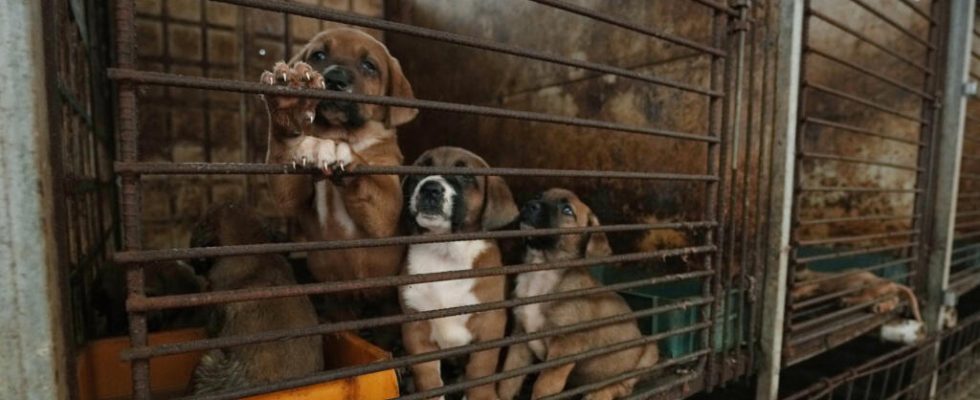In South Korea, the consumption of dog meat: it’s over. Parliament voted on Tuesday a law banning the eating and sale of dog meat. This historic culinary practice in the country will be officially illegal after a three-year transition period. A decision welcomed by animal rights organizations, but which questions the future of both animals and breeders.
2 mins
with our correspondent in Seoul, Nicolas Rocca
More than two-thirds of South Korean MPs voted in favor of the text banning the consumption and sale of dog meat and none voted against.
This tidal wave reflects the national feeling towards the practice. Around six million South Koreans have dogs as pets, with only a minority continuing to use them. Only 8% reported having eaten it last year according to a survey by the Gallup Korea organization.
Historically, meat is served in a soup: bosintang. A dish supposed to give energy during periods of high heat, and still appreciated especially among older generations.
Also listenSouth Korea: dogs, man’s best friends or best in soup?
If the consumption of dog meat is in decline, its ban is not unanimous. Breeders’ associations have repeatedly expressed their opposition to the bill and intend to refer the matter to the Constitutional Council. If the text envisages compensation for professionals in the sector, the contours remain vague. Just like the details concerning the future of the approximately 600,000 dogs still in cages according to figures from the Ministry of Agriculture.
Read alsoSouth Korea: upcoming ban on dog meat consumption angers breeders
The ban will be definitively implemented in 2027 and both sale and consumption will be punishable by three years in prison and a fine of 20,000 euros.
